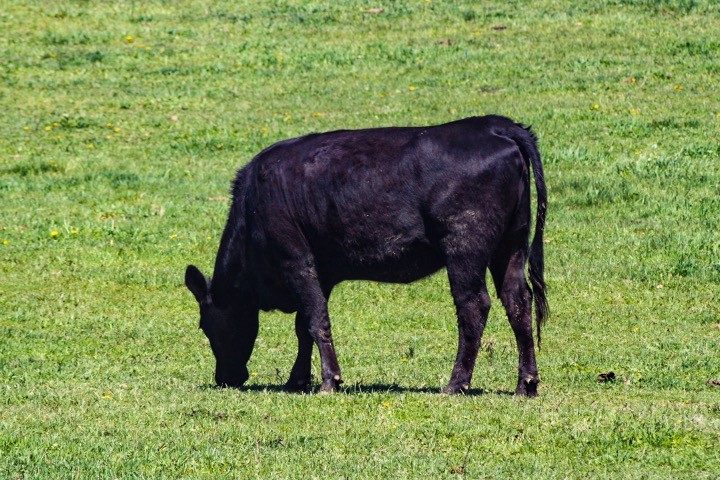
It’s all for the climate, don’t you know …
Billionaire globalist Bill Gates of Microsoft (and, allegedly, Epstein Island) fame is investing significant funds into an Australian firm that is looking to decrease the amount of gas released from livestock. The Perth based company, Rumin8, is looking to “create climate friendly supplements which reduce methane emissions from livestock.”
Radical climate activists believe that burping and flatulence produced by livestock are a major part of the emissions supposedly causing global temperature increase, which some believe is contributing to out-of-control global warming and the end of the world as we know it.
Rumin8 seeks to create an organic supplement for livestock feed that would cut down on the amount of methane produced when livestock burp or have flatulence. The supplement would be created largely from red seaweed, which the company believes will cut down on the gas emitted from feeding animals.
“The demand for sustainable protein has never been more apparent, which is why BEV is keenly interested in reducing methane emissions from beef and dairy,” said Carmichael Roberts, co-founder of Breakthrough Energy Ventures, a Gates organization dedicated to creating creative and “sustainable” climate solutions — whether we need them or not.
“Rumin8 offers a low cost, scalable toolbox that has already proven to be effective in reducing emissions. Our team will support Rumin8 in working closely with farmers to expand the reach of this solution globally,” Roberts added.
According to Rumin8 Managing Director David Messina, the red seaweed needed to produce its feed supplement won’t even need to be harvested from the sea, but, rather will be manufactured and then made into the gas-suppressing feed.
“This breakthrough provides Rumin8 with the ability to develop … scaleable, consistent, cost-effective livestock supplements, which are inspired by nature, but have the potential to decarbonize the global livestock industry while providing productivity benefits,” Messina said.
A spokesperson for BEV told CNN: “Although cows are a significant [greenhouse gas] source, livestock agriculture remains one of the cheapest protein sources globally, which means technologies that can reduce emissions from the existing cattle supply chain today and in the future are critical.”
During its “phase 2 seed round of funding,” Rumin8 has raised $12 million, which will be used on commercial trials in Australia, the United States, New Zealand, and Brazil. Some of the funds will also go to product brand development and pilot manufacturing plant development. All told, Rumin8 has secured approximately $17.7 million in both phases of its funding.
Rumin8 is appreciative of the funding it’s received from climate activist groups around the world.
“We have been very pleased with the reception we have received from climate impact funds around the world,” said Messina. “There is a genuine desire to fund solutions to enteric methane emissions from livestock and fortunately for Rumin8, they can see the benefits of our technology.”
Rumin8 is not the only entity dedicated to the livestock gas “problem” as it concerns so-called climate change. The U.K.’s King Charles has supported an inhumane plan to have cows wear masks, which would ostensibly trap the methane produced by one end of the animal.
And in October of last year, outgoing New Zealand Prime Minister Jacinda Ardern forwarded a plan to reduce methane by taxing agricultural producers for their methane emissions. Ardern lauded the concept as the first of its kind in the world.
“No other country in the world has yet developed a system for pricing and reducing agricultural emissions, so our farmers are set to benefit from being first movers,” Ardern said. “The key to us is that what we do is workable, it’s pragmatic, it can be introduced in a timely way and will actually bring down our emissions.”
At COP26, which took place at Glasgow, Scotland, in 2021, 100 nations pledged to reduce methane emissions by 30 percent by 2030.
“Cutting methane pollution is the fastest way there is to slow the warming as we continue the transition to cleaner, safer, healthier energy systems,” said Fred Krupp, the president of the Environmental Defense Fund.
It’s also another way to reduce the food supply and vilify farmers for the unforgivable sin of feeding up. Gates, a noted vaccine pusher (Covid vaccines and others), has long been a proponent of the Malthusian notion that fewer people would be better for the Earth.
So his funding of this absurd project is just another way of telling the “little people” of the globe that what they want is irrelevant. He and his globalist cronies are setting the planet’s agenda going forward, so you better learn to deal with it.




